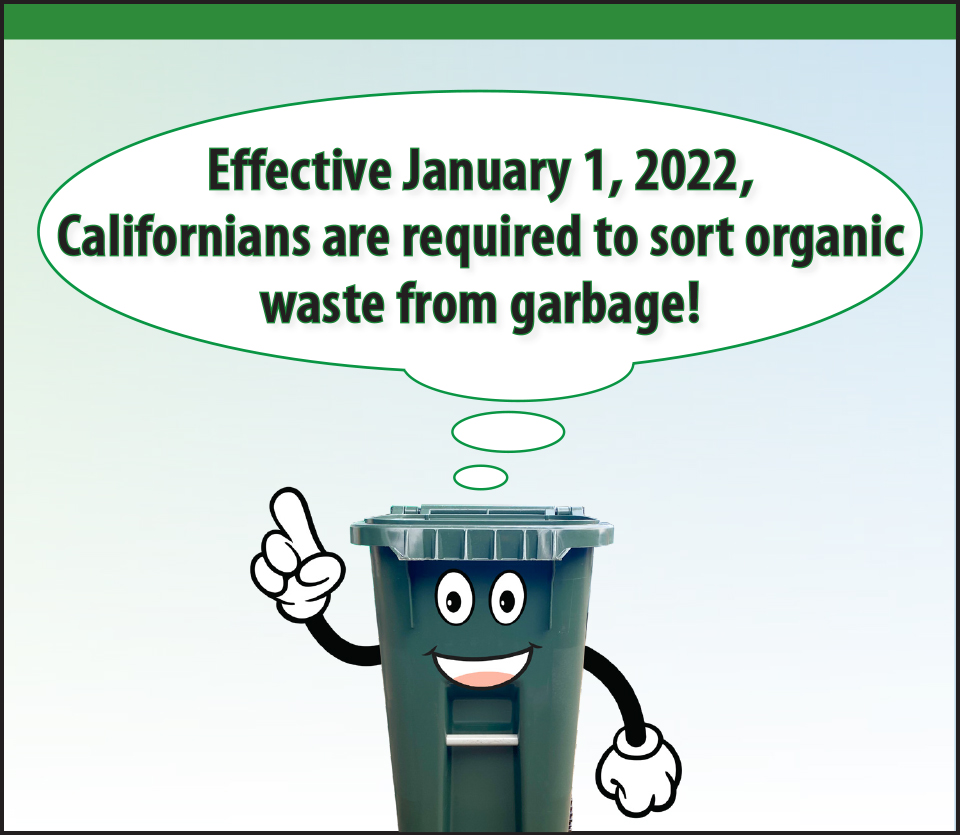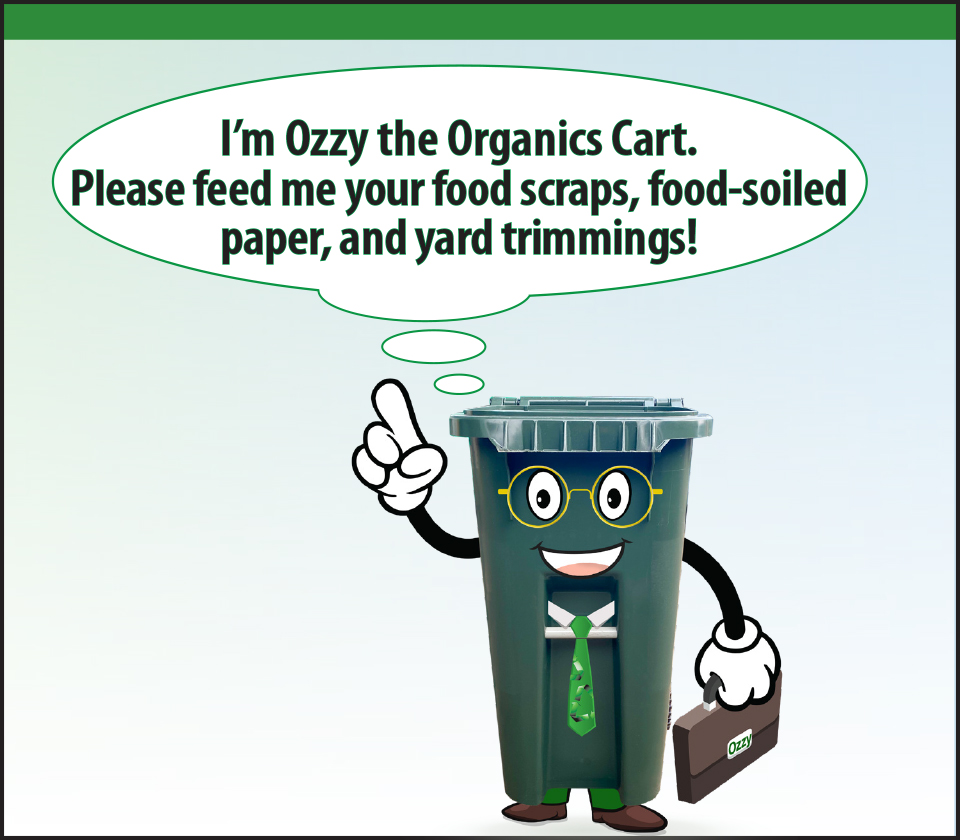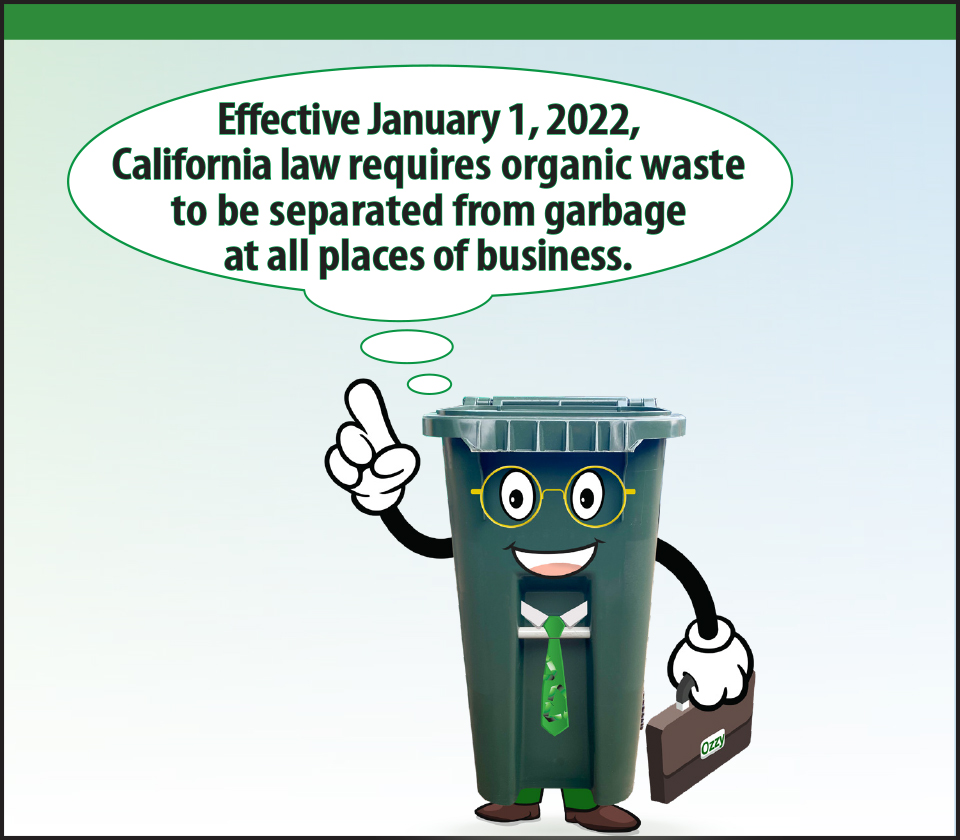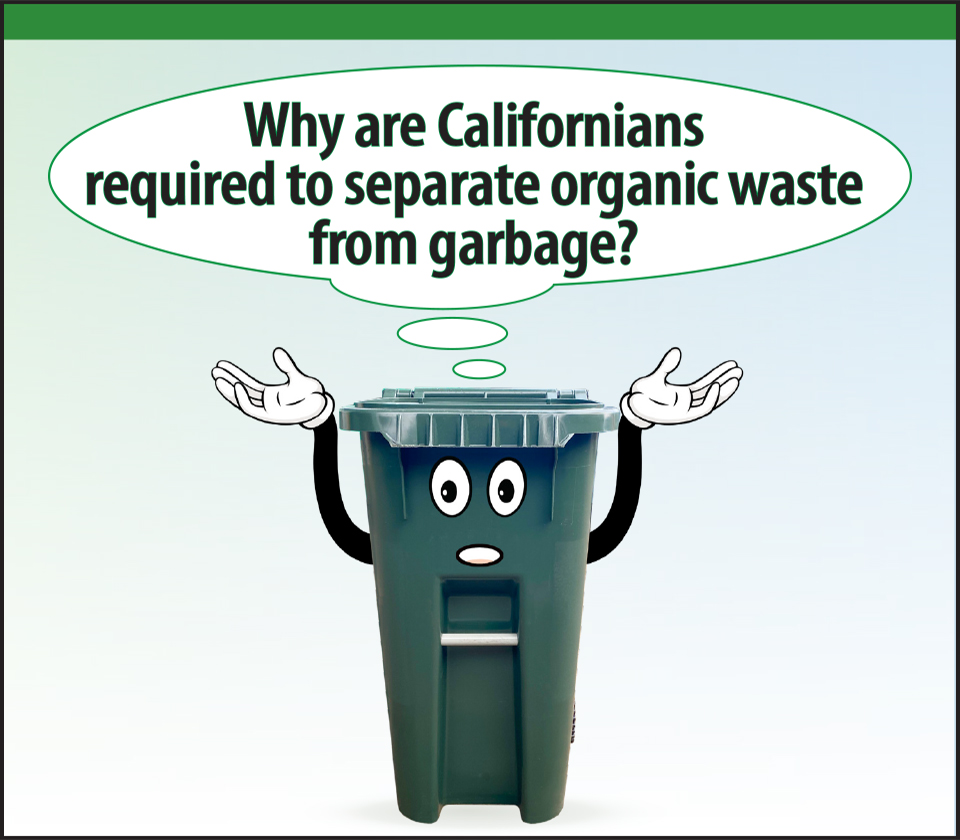South San Francisco, CA April 13, 2022 Submitted by Teresa Montgomery, SSF Scavengers
TRASH TALK 1
Q: How does the new California law (SB 1383) effect residents of Brisbane, Millbrae, South San Francisco?
A: Everyone is now required to have organics collection service. The law requires thoughtful sorting of waste materials before placing in the correct bin for collection. Organic waste like yard trimmings, food scraps, and food-soiled paper belong in a green bin. Clean/dry paper and cardboard belong in the appropriate blue bin (under the grey lid if you have a split recycling cart). Many residents are already doing this. Those that are not, are required to start and should call South San Francisco Scavenger at 650.589.4020 if in need of a green bin. Note that residential customers (single-family homes with weekly curbside cart service) pay an integrated rate for waste collection; there is no additional charge for adding a green cart. Commercial customers (including multifamily residential properties where waste bins are shared by many families) incur a charge for adding green bin service. This charge is usually mitigated by decreasing garbage collection. It is the property owner or manager’s responsibility to contact South San Francisco Scavenger to start green bin service. Individual tenants should encourage them to do so.

Q: Can all products that are labeled “compostable” be placed in the green bin?
A: No. Your green bin is only for organic waste materials that can successfully be processed into fuel and compost. Those materials are yard trimmings, food scraps, food-soiled paper, and wax-coated paper (like parchment paper, wax paper, wax-coated produce boxes). The green bin is not for items that look like plastic—regardless of what their label may say. Please visit ssfscavenger.com/sort-smart for additional sorting tips.

TRASH TALK 2
Q: How does the new California law (SB 1383) affect businesses in Brisbane, Millbrae, South San Francisco?
A: All places of business are required to separate organic waste from other trash. For-profit and non-profit businesses, government and industrial facilities are required to:
- Subscribe to recycling, organics, and garbage service. Bin size and frequency of service must be sufficient to handle the volume of waste material created. [Please contact South San Francisco Scavenger at 650.589.4020 to add necessary service.]
- Provide recycling and organics bin access to employees, contractors, tenants, and customers. The number, size and location of bins must be adequate. Recycling and organics bins must be present wherever there is a garbage bin (except inside restrooms). Bin colors (body of bin and/or lid) must be consistent: blue for recycling, green for organics, gray (or black) for garbage. Bins must also have labels illustrating the primary materials that are accepted and prohibited.
- Provide educational information to employees and tenants about the requirements to separate organics and recycling from the garbage. This must be done within 14 days of new occupation of premises, and at least annually. Instructions for properly sorting materials into the correct bins shall be included.
- Inspect collection bins at least twice yearly for contamination. Inform employees of contamination found and of the requirements to sort materials correctly.
Q: Does the new law have additional requirements for businesses that provide food?
A: Yes. SB 1383 requires supermarkets, grocery stores, food service providers, food distributors and wholesale food vendors to donate excess edible food to feed people. County of San Mateo Office of Sustainability is leading this effort. Details at <www.smcsustainability.org/generator-edible-food-recovery-requirements>.

Trash Talk 3
Q: Why must I use my green cart?
A: The yard trimmings, food scraps and food-soiled paper collected from green carts is processed into renewable fuel and compost. If placed in your grey cart, these items are not transformed into anything useful. Instead, they take up valuable (and dwindling) landfill space and release methane into the environment. Methane is a super pollutant that contributes to global warming and can make the air we breathe unhealthy.
Q: What happens to the compost made from materials we place in our green carts?
A: It is commonly used in California’s agricultural areas to grow new crops. It is also sold or otherwise provided for commercial and residential use in parks, yards, roadsides and roadway medians, and more.
Q: Why is it so important to use compost?
A: Compost use closes the loop! Without a viable market for finished product, our composting efforts wouldn’t be worthwhile. Plus, compost makes for healthy soil which sequesters carbon and retains moisture. This means crops and plants require less irrigation, which is always important in arid California, and doubly so under our current drought conditions. Compost application can also lead to less runoff, improving water quality.

How the heck do we collect food scraps to the large bin. Are you suggesting we dump
our our small bin but they not to let the plastic trash bag slip in with it so we have to hold the dirty bag back to put in a different bin? We sure as heck don’t want to use a bare small bin and have to clean it.
Please review the tips listed here. Plastic liner bags really aren’t necessary.
Thank you Teresa for this information.
-ED